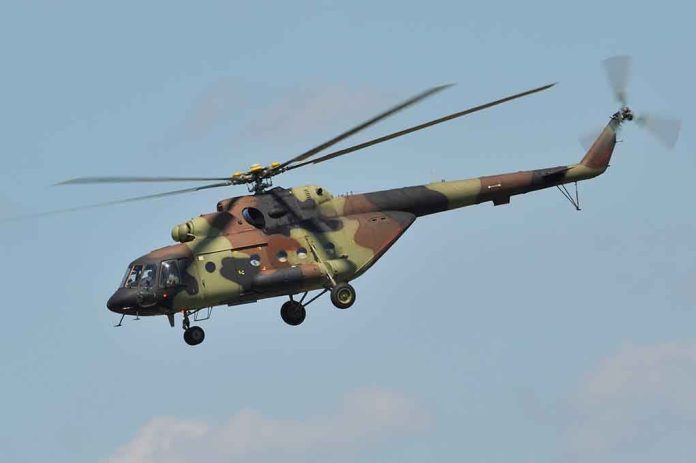
America’s most elite Army aviators have paid the ultimate price in a training tragedy, exposing the hidden dangers faced by our special operations forces even far from the battlefield.
Story Highlights
- Four soldiers from the 160th Special Operations Aviation Regiment died in a Black Hawk helicopter crash during a routine training mission near Joint Base Lewis-McChord, Washington.
- The Army delayed releasing the names of the fallen to respect the families and ensure proper notification before making the news public.
- The crash renews scrutiny on military training safety and the risks endured by America’s most skilled warriors outside of combat zones.
- An official investigation is underway; no mechanical, weather, or external causes have been identified at this time.
Elite Night Stalkers Lost During Training: What Happened
On the night of September 17, 2025, an MH-60 Black Hawk helicopter belonging to the Army’s 160th Special Operations Aviation Regiment crashed near Summit Lake, just west of Joint Base Lewis-McChord in Washington state. All four service members aboard—highly trained “Night Stalkers”—were killed during what was described as a routine training flight. The Army located the crash site the next day, but recovery operations were delayed due to a fire at the scene. By September 22, the Army publicly released the names of the fallen, after ensuring their families had been notified.
The 160th SOAR, known for its role in supporting elite missions involving units like SEAL Team 6 and Delta Force, is widely recognized for its exceptional skill in nighttime and low-level operations. Joint Base Lewis-McChord, where the regiment is based, is a central hub for special operations training. At the time of the accident, weather conditions were reported as clear with light winds, and there were no initial signs of mechanical malfunction or external interference. The Army emphasized that this was a training flight, not a combat mission, underscoring that danger is ever-present for those preparing to defend American interests at home and abroad.
Honoring the Fallen and Supporting Their Families
The four soldiers lost—Chief Warrant Officer Andrew Cully, Chief Warrant Officer Andrew Kraus, Sergeant Donavon Scott, and Sergeant Jadalyn Good—represented not only the best of the special operations community but also the values of individual courage, self-sacrifice, and devotion to duty. Army Special Operations Command and the 160th SOAR leadership have publicly praised their dedication and professionalism. The Army delayed releasing the names to allow for proper family notification and to show respect for the privacy of those grieving. This incident has sent shockwaves through both the military and their local communities, particularly near JBLM, as families and fellow soldiers come to terms with this profound loss.
Investigating the Cause: Ensuring Accountability and Safety
As of this report, the Army has completed the recovery effort and secured the crash site. A formal investigation has begun, but officials have not yet released any preliminary findings regarding the cause. In previous incidents of military aviation accidents, investigations have led to reviews of safety protocols and equipment maintenance procedures. Experts agree that while such accidents are rare, they highlight the inherent risks of military aviation—particularly for those serving in special operations roles. Conservative voices have long called for rigorous oversight of military training and equipment readiness, demanding that bureaucratic mismanagement or cost-cutting never compromise the safety of America’s warriors.
This tragedy may prompt a renewed look at training standards, aircraft maintenance, and overall readiness. While the immediate economic impact is limited, the emotional and morale effects on the military community are significant. The investigation’s outcome will be closely watched by those who value American military strength and by families who expect government accountability and support for those who serve.
Broader Impact on Military Readiness and Values
For the 160th SOAR and the wider special operations community, the crash is a sobering reminder that even routine training can come with great risk. This loss will likely lead to internal reviews and possibly new safety measures, reinforcing the need for continued investment in both training and equipment modernization. The broader public may see renewed debate over how the government supports and equips its military, with a focus on ensuring that no policy—be it budget cuts, neglect, or misplaced priorities—undermines national defense or the safety of those in uniform. Such tragedies call for a recommitment to core American values: honoring sacrifice, demanding accountability, and ensuring our forces have what they need to train and fight effectively.
Army identifies 4 soldiers killed in military helicopter crash in Washington state https://t.co/BOaetqx9kb
— ABC11 EyewitnessNews (@ABC11_WTVD) September 22, 2025
As the Army’s investigation proceeds, the families, fellow soldiers, and the nation await answers—and resolve to honor the fallen by making every effort to prevent future tragedies among those who stand ready to defend our freedoms.
Sources:
ABC News – Helicopter crash at military base in Washington state kills four Army soldiers
FOX 13 Seattle – Four soldiers dead in helicopter crash near JBLM
Military Times – Four soldiers killed in Washington state helicopter crash, Army says
ABC News (updated with names) – Army identifies 4 soldiers killed in military helicopter crash


